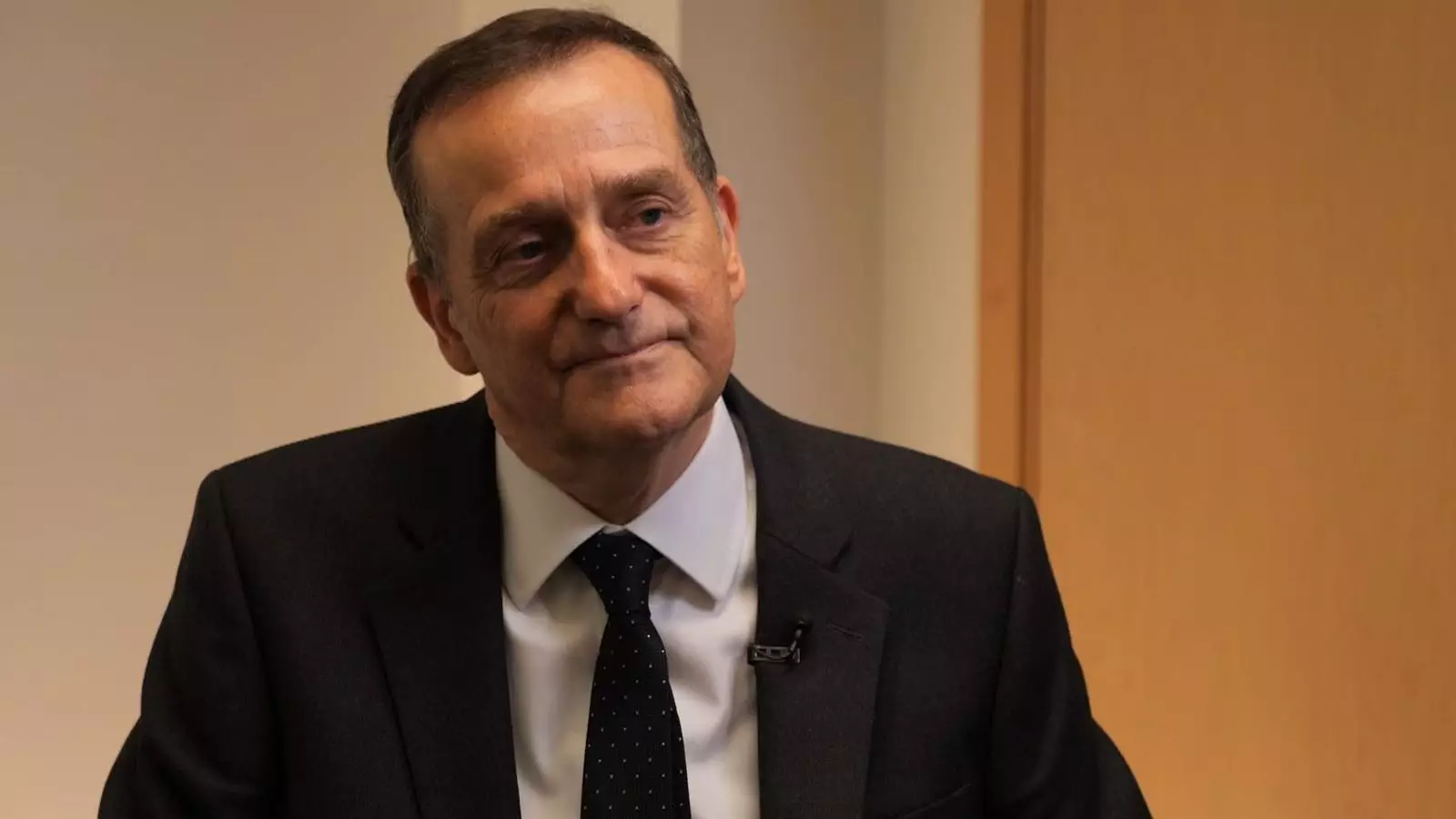In recent months, the issue of delayed justice in cases of rape and sexual offences has escalated to a crisis level in England’s crown courts. The newly appointed Director of Public Prosecutions (DPP), Stephen Parkinson, has boldly declared the current backlog as “totally unacceptable.” This statement not only captures the frustration echoing within the judicial system but also highlights the urgent need for reform. The staggering statistic that adult survivors wait an average of 710 days from lodging their complaint to the conclusion of proceedings underscores the gravity of the situation. This protracted wait for justice is not merely a logistical issue; it cultivates an environment where victims often feel unsupported and demoralized, significantly impacting their willingness to engage with the legal process.
The repercussions of these delays extend beyond mere numbers; they create a climate where allegations can be easily undermined. Parkinson emphasizes how the lengthy wait times can lead defendants to exploit these delays, banking on the hope that victims may withdraw their cases. The dilemma is evident: without a robust response to these issues, the courts risk losing credibility, leaving victims to feel abandoned and vulnerable.
In response to these alarming delays, Parkinson unveiled a new survivor support programme, aimed squarely at improving communication and empathy within the Crown Prosecution Service (CPS). Integral to this initiative is the appointment of 40 new victim liaison officers, designed to act as consistent points of contact for survivors. This structure intends to ease the process of navigating the legal labyrinth, providing necessary support and clarity through pre-trial meetings—whether in person or online.
Charlotte Caulton-Scott, head of the CPS unit focused on rape and serious sexual offences, admitted that historically, the organisation has not met the needs of survivors adequately. This recognition of failure and the commitment to making tangible improvements are promising indicators of a potential shift within the CPS. However, while enhancing communication and support for survivors is undoubtedly essential, greening the surface may not be enough to tackle the underlying structural inefficiencies.
The initiative’s emphasis on developing an “open and empathetic” CPS reflects an understanding that emotional support is critical for survivors as they navigate a harrowing process. Engaging directly with victims has provided valuable insights into their needs, which is a step in the right direction. However, it remains to be seen whether these changes can translate into meaningful results or if they are mere cosmetic alterations.
Despite the positive intentions behind the new support programme, various stakeholders, including survivor charities, express skepticism regarding its effectiveness. Raffy Elliston, an independent sexual violence adviser from the charity Solace, acknowledges the initiative as a promising first step. However, she voices concerns that it may not meaningfully address the mounting backlog hindering justice for so many.
Elliston’s critique points to the deeper issues plaguing the system: the need for specialized courts, an increase in the number of judges, and measures to prevent harmful last-minute adjournments. These aspects are pivotal if the programme is to enjoy a constructive impact. Simply offering meetings and points of contact may provide clarity but won’t scratch the surface of the systemic issues at play.
The Criminal Bar Association has projected that the number of criminal cases could soar to a staggering 80,000 by March 2025. This looming deadline intensifies the urgency for robust measures not only to handle the existing backlog but to prevent further accumulation. The call for radical reform is clearer than ever; justice demands comprehensive approaches that extend beyond administrative reassurances.
As the new survivor support programme rolls out, all eyes are now on the CPS and its ability to deliver on its promises. The challenges of restoring faith in a beleaguered judicial system cannot be overstated. Survivors require not only compassion but also concrete actions that foster a sense of security and resolve.
In this critical moment, the push for systemic overhaul will require unwavering commitment, transparency, and rigorous scrutiny of the measures implemented. The stakes could not be higher: the dignity and well-being of countless individuals hang in the balance, and as advocates have pointed out, incremental changes may merely serve as temporary patches over a ruptured system.
Ultimately, it is clear that the fight against sexual violence, while fraught with complexities, demands a steadfast and multifaceted approach, one that addresses both the emotional needs of survivors and the overarching systemic barriers that continue to thwart their quest for justice.



Leave a Reply